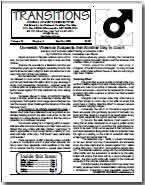
With Queensland Premier, Annastacia Palaszczuk recently addressing the language around male domestic violence, and Australia’s sportsmen voicing their struggles with depression, a conversation about men’s personal issues has begun.
Men are typically not communicators, keeping their personal qualms secret, while women find it easier to socialise.
Additionally, boys are raised not to show “weakness” – when you are abused by someone who is female, shorter and lighter than you, to many men, this is the very definition of the word.
Similar to how women in abusive relationships are told to “just leave”, men are told to “man up and take it”.
With an array of statistics from different organisations, and a lack of voices from men who have been abused, the conversation around male domestic violence is often muted.
Senior Researcher Greg Andresen said there are many factors that influence the silence from male victims.
“There’s a real challenge there for men to admit that stuff because there’s a fear that it will make them appear as less of a man, or that they’ll be ostracized, teased or not helped, or the violence will be downplayed or minimised, or even that they will be blamed for it,” he said.
Domestic violence survivor, Craig Bennett felt ignored by social services and organisations when he asked for help.
“In 2009 when I rang up the [New South Wales] Department of Community Services hotline for domestic abuse, the woman on the phone said to me she didn’t believe I was being abused by my wife, because ‘only men abuse women’,” he said.
Craig made the phone call after enduring months of physical, emotional and verbal abuse from his now ex-wife.
This abuse first began after he spent two months in hospital with a case of viral encephalitis, causing paralysis on the right side of his body.
Disabled and weak, Craig was left extremely vulnerable, with his wife refusing to buy him a necessary shower chair and verbally abusing him from the day he left hospital.
“On the way home from hospital my wife blasted me, saying you’re just a lazy c**t, real men have a shower standing up. She never got me the shower chair and I had to actually shower sitting on the floor,” he said.
Professor of Social Work and Human Services at the University of Queensland, Dr Deborah Walsh said while women are indeed the majority victims of domestic violence, men who are abused experience the similar trauma.
“The violence however, is no less as damaging psychologically and emotionally. Men don’t appear to have as many injuries as women have, but that doesn’t necessarily say that they are any less affected, I think they are profoundly affected,” she said.
Mr Andresen said when men are able to overcome their internal struggles with reporting their abuse, their hopes of help are often squandered anyway due to the lack of services for men.
“For the last forty or fifty years we’ve had services only supporting female victims, and while that’s fantastic for women, because of that, when a man actually seeks support, all he sees is services for women,”
“When there are services for men, they’re only for male perpetrators. That makes him feel more isolated, that maybe he’s the only one in this situation, maybe he’s to blame, or that if he did approach the service that he wouldn’t get proper support, because it’s set up for women and not men,” he said.
Craig said after he was turned away by the Department of Community Services, he eventually received some help from a counsellor at Brighter Futures who sympathised with him, although the organisation is not set up to assist men.
“She said, ‘I can see you need help, so I can slip you through the back door’. Firstly twice a week and then once a week, she offered me some initial counselling,”
“Unfortunately she left, and the new case worker said that in order for me to stay with Brighter Futures I had to go and do an anger management course, which was really bizarre,” he said.
Craig decided against doing the anger management course, as he realised it was unreasonable that he should need to undertake the program when he was not the abuser.
“I didn’t do it, and I’ve since met many men who didn’t have an anger problem and have done that course in good faith. Later [when they] went to court for custody of the kids and stuff like that, the lawyer turns around and says ‘this guy has anger management issues and here’s the certificate to prove it’,” he said.
Craig said while there is help for male perpetrators, there are no such programs for females with anger issues.
“There’s no anger management course for women in any of these programs at all, there’s no violence management courses for female attendants [of the programs], it’s only for males,” he said.
Eventually things reached breaking point in Craig’s household when his ex-wife violently attacked him one day after many instances of threatening and abusive behaviour.
“I was getting punched in the head, I had been spat on, there was the verbal abuse, emotional abuse, the mocking. It got to the stage where she went psycho. She ripped a really good, thick polo t-shirt off me,” he said.
“There was a time where I had done security work in some years previously. I put her in a security hold from behind, she bit me on the wrist right down to the bone and I pushed her away and she fell and hit her head on the couch. That was the first time I had ever laid a hand on her in twelve years of marriage, I had never hit or threatened her and that was entirely in self-defence,” he said.
The police were called to Craig’s house by his ex-wife, who showed the police his anti-depressants and claimed that he was mentally ill and needed to be arrested.
Fortunately, the police realised that Craig was the victim, and wanted to arrest his ex-wife.
“They wanted to charge her with assault, however I asked them not to. In hindsight, I should have done that, I should have let them charge her. They had to contact their higher-ups not to do that. The police response there was very good.”
“My recommendation would be to guys is to ring the police and go through with any charges, because that way there’s a public record with the police about the incident,” he said.
While male domestic violence often goes unreported due to organisations not recognising them as victims or the men themselves fearing ridicule, Mr Andresen says different organisations selecting particular statistics can also complicate the conversation.
“Of course we are supporting male victims, so we will look for those statistics that reflect the proportion of victims that are male, and other organisations that are supporting women will choose those statistics which show that data about women being abused.”
“They’re wanting to increase awareness and generate support and funding, so of course they’re going to choose those statistics,” he said.
In order for men to reach out, they need to know they can speak without being ridiculed for not being tough enough, Dr Walsh said.
“Men are socialised into that code of masculinity; strong, stoic – all of those characteristics that go along with that masculine identity.”
“It’s that notion that tough men don’t need help [that contributes to the problem],” she said.
Dr Walsh said it is encouraging to men who experience issues such as domestic violence, depression or anxiety some sportsmen such as AFL player Mitch Clark and NRL player Darius Boyd have spoken about their struggles.
“It’s absolutely fantastic to see that there’s some top footballers coming out and saying that they’ve been struggling with depression and that they’re dealing with it. Challenging that image that strong men don’t need help, sends that message that everybody needs help and support and assistance sometimes,” she said.
According to Dr Walsh, there needs to be comprehensive and inclusive education about domestic violence.
Mr Andresen also said education is the key to facilitating a more inclusive conversation on domestic violence.
“We would like to see government funded public education campaigns that address the issue of domestic and family violence, in a way that supports all victims and all perpetrators so that anyone experiencing family violence can identify with that campaign and seek the support that they need and that that support is provided,” he said.
To read more of Craig’s story, visit his blog, “Through Hell and Back.”
If you or anyone you know is experiencing domestic violence in any capacity you should reach out for support.
In an emergency dial 000


